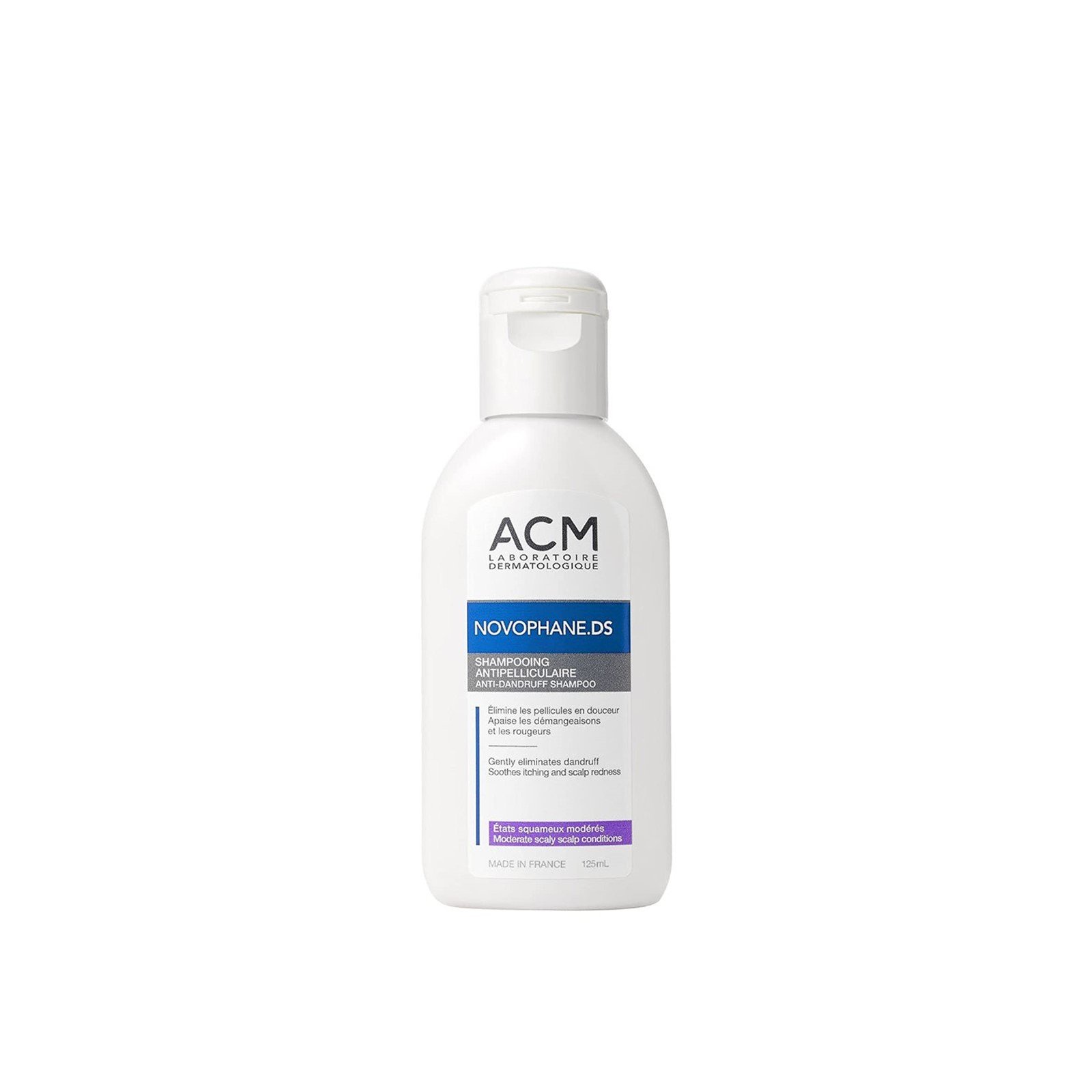ACM Laboratoire Novophane.DS Anti-Dandruff Shampoo 125ml is a hair care solution designed to address and treat causes of dandruff. This shampoo not only gently cleanses the hair but also soothes irritation and itchiness, effectively removes dandruff scales, and helps prevent future occurrences. Its formula is adept at preventing the proliferation of Malassezia furfur, a fungus responsible for dandruff, thus ensuring the scalp remains healthy and balanced. The incorporation of Piroctone Olamine in an antifungal complex, along with Glyceryl Undecylenate, Vitamin PP, and Inulin, plays a critical role in preventing dandruff. Besides, this complex not only purifies the hair but also regulates the microflora of the scalp, keeping it healthy and reducing discomfort.
Moreover, with Salicylic Acid in this formula, this product grants keratolytic and sebo-regulating actions. As a result, it assists in removing scales and eliminating flaking caused by dandruff. Additionally, the inclusion of Sodium Lactate, Lactic Acid, and Glycyrrhetinic Acid hydrates the scalp and significantly reduces irritation and itchiness. Lastly, PCA Glycerol Oleate combined with Inulin enhances the shampoo's ability to smooth and hydrate the hair, leaving it softer, shinier, and easier to manage. In essence, this product not only cleanses the hair but also offers a comprehensive treatment that leaves the hair manageable, easy to comb, and free of dandruff. By tackling the root causes of dandruff, regulating sebum production, and soothing the scalp, this shampoo stands as an effective ally in maintaining a healthy, dandruff-free scalp and beautiful, manageable hair.
Characteristics
- Texture: liquid;
- Hair issues: moderate dandruff;
- Time of application: one to three times a week;
- Age: 12+;
- Hair type: all hair types;
- Main benefits: gently cleanses the hair, soothes irritation and itchiness, removes dandruff scales and helps prevent relapses, prevents the proliferation of Malassezia furfur, helps control sebum production, leaves the hair manageable and easy to comb;
- Formulated without: fragrance.
Main Ingredients
- Piroctone Olamine is combined with Glyceryl Undecylenate, Vitamin PP, and Inulin in an antifungal complex. This complex limits the development of the fungus responsible for dandruff - Malassezia furfur. Besides, this complex helps to purify the hair and regulate the microflora of the scalp;
- PCA Glycerol Oleate combined with inulin, helps to smooth and hydrate the hair. As a result, makes it softer, shinier, and easier to comb through;
- 0,5% Salicylic Acid has keratolytic and sebo-regulating action. This helps remove scales and eliminate flaking from dandruff;
- Sodium Lactate, Lactic Acid, and Glycyrrhetinic Acid not only hydrate but also soothe the scalp. As a result, it reduces irritation and itchiness.
How to use
Apply ACM Laboratoire Novophane.DS Anti-Dandruff Shampoo 125ml to the wet scalp and massage. Leave it on for a few minutes and then rinse thoroughly. Apply two to three times a week during the attack phase. Then, reduce the frequency to one to two times a week for the maintenance phase to prevent relapses.








